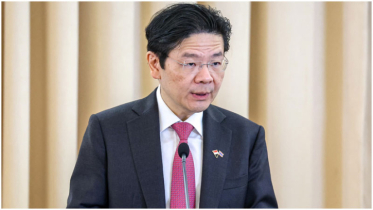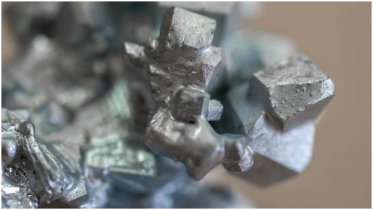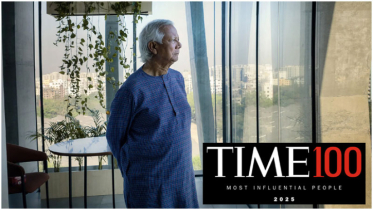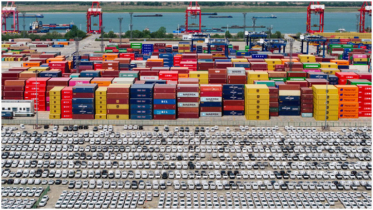Islamic Dev Bank offers Bangladesh $4.9b for fuel purchase, projects
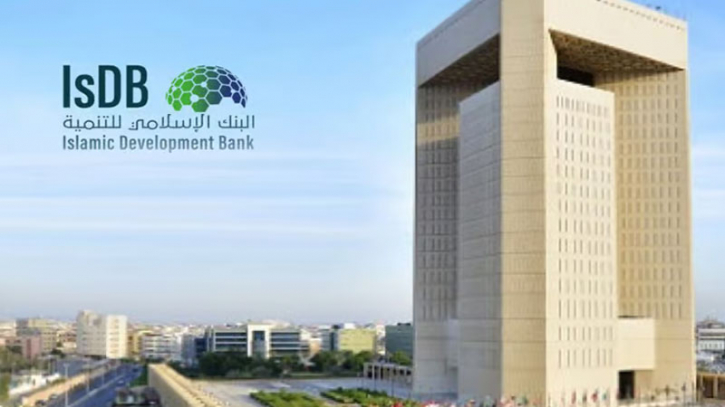
The Islamic Development Bank (IsDB) Group has offered Bangladesh a substantial $4.9bn in loans, spread across a three-year timeframe starting current year. The loan is earmarked for energy procurement, developmental projects, and bolstering the private sector, as stated by officials at the Economic Relations Division (ERD) of Bangladesh.
This latest proposition supplements the agreed-upon $2.1 billion loan from the International Islamic Trade Finance Corporation (ITFC) for 2024-25, specifically addressing Bangladesh's energy import requisites. An agreement for the loans took place on 7 February in Dhaka.
Some $3.2 billion of the loan will be allocated for procuring oil and gas, facilitated through the ITFC, considering Bangladesh's enduring dollar crisis and its ongoing challenges in settling import bills.
Another $1.3 billion is designated for Bangladesh's development projects, with the interest rates aligned with prevailing market rates.
There's also a proposal on the table for a $400 million loan through the Islamic Corporation for the Development of the Private Sector (ICD), the Jeddah-based group's arm focused on private sector advancement, as disclosed by ERD officials.
Alongside these loan proposals, the IsDB Group has put forth a provision for insurance facilities worth $2.5 billion for Bangladesh through the Islamic Corporation for the Insurance of Investment and Export Credit, the group's insurance arm, according to ERD officials.
The Corporation's mission is to facilitate trade and investment between member countries and the world through Shariah-compliant risk mitigation tools.
Muhammad Nassis bin Sulaiman, regional manager (residential head) of the IsDB Regional Hub in Dhaka, shared the proposals during a meeting with ERD Secretary Md Shahriar Quader Siddiqui on 15 February.
The Saudi-headquartered group offers market-based loans for development projects. Given the current high Secured Overnight Financing Rate (SOFR) rate, it will be determined – after the ERD review – whether to accept the loan and, if accepted, how much, a senior ERD official said.
Zahid Hussain, former lead economist at the World Bank's Dhaka office, said, "Although the IsDB is offering long-term loans, the terms and conditions suggest that the loans will resemble commercial ones, with several charges associated with Mid-swap."
He said this type of borrowing could be considered to augment foreign sources during this time of a dollar crisis.
"However, in this case, it is advisable to retain the flexibility to determine the loan amount based on our needs rather than being bound by a condition requiring the entire loan to be utilised," he added.
Zahid Hussain suggests such loans for projects that are quickly implementable and will yield commercial benefits.
Additionally, the economist said ITFC loans for the procurement of oil and gas could be pursued to ensure the country's energy security.
Bangladesh has been procuring loans from the ITFC to purchase oil since 2008. Since 2024-25, the government has initiated borrowing from the multilateral lender for gas procurement as well.
The proposed duration of six months by the international trade financing arm of the IsDB may change. The decision regarding any adjustments will be made after discussions with the relevant government ministries and departments, the official said.
ERD officials said Bangladesh has not received significant project finance from development partners in recent years. The country did not take any loans from the IsDB during the fiscal 2022-23.
Bangladesh borrowed only $36.4 million in FY21 and $72 million in FY22. No loans were taken in the preceding two financial years.
An ERD official, speaking on the condition of anonymity, disclosed that the IsDB primarily offered ordinary capital resources (OCR) loans procured through the ERD. Following a comprehensive review of the terms and conditions, the government will determine whether to accept a loan from this lender and the specific amount to be borrowed.
The loan has a maturity period of 20 years, with a five-year grace period.
The interest rate will be a five-year mid-swap rate plus 1.5% to 1.9%, and the service charge will not exceed 1.5% per year.
According to ERD sources, the IsDB has proposed $1.9 billion for the purchase of oil and the remaining $1.3 billion from the ITFC for liquefied natural gas (LNG) over the next three years.
The lender will charge 1.8% interest with a six-month SOFR rate for the loan, with a tenure of six months. Additionally, a 0.20% administration charge is also to be paid along with a service charge.
"The ITFC CEO is expected to arrive in Bangladesh on 27 February. During his visit, discussions on loan proposals will take place," a top official at the Energy Division told TBS, on condition of anonymity.
The country's expenditure on energy imports, including fuel oil and LNG, amounted to approximately $10 billion in the fiscal 2022-23. This expenditure is anticipated to remain the same in the current financial year ending in June.
Experts forecast that if Bangladesh continues to rely on imports to this extent, the energy bill could double by 2030.
Saying the government is considering implementation of an automatic pricing system for fuel oil from March this year, they said utilising this high-interest loan to import fuel oil could lead to an increase in prices under the automatic pricing system. Consequently, consumers may bear the burden of higher prices along with accumulated interest.
Last year, the government agreed to borrow $1.4 billion from the ITFC to import fuel oil. Of the amount, the Bangladesh Petroleum Corporation has already taken $800 million, while the remaining $600 million is due by June. Due to the dollar crisis, the loan instalments cannot be paid on time, leading to an extension obtained from the ITFC.
Since its establishment in 2008, the ITFC has approved nearly $16.5 billion in trade assistance proposals for Bangladesh. The private sector, including banks, also benefits from commercial financial assistance provided by the ITFC.
A glimpse of ITFC finances for Bangladesh
According to the Energy and Mineral Resources Division, the BPC has been primarily importing petroleum products, especially crude oil, by utilising ITFC loans since 1997.
In 1997, the loan amount was only $67 million, but it reached $1.4 billion last year. The highest amount recorded was $2.6 billion in 2012. ITFC loans have predominantly been used for financing crude oil imports, ensuring a smooth import process.
Since 1997, ITFC's short-term loans have totalled more than $24.58 billion up to the fiscal 2024-25 under its Syndicated Murabaha Operation. As of FY23, a total of $20.805 billion, including principal and interest, of the oil purchase loans have been repaid.
Why ITFC?
According to sources at the Energy Division and the BPC, there are several benefits to obtaining loans from the ITFC for oil and energy imports. The ITFC has a SWIFT Arrangement/Relationship Management Application (RMA) with designated banks of Abu Dhabi National Oil Company and Saudi Arabian oil company Saudi Aramco in their respective countries. Consequently, opening LCs on ITFC loans proves advantageous.
Bangladesh can open LCs only with the country's state banks. However, the designated banks of Abu Dhabi National Oil Company and Saudi Aramco do not have RMAs with Bangladesh's state banks. International banks establish RMAs by assessing country risks and counterparty financial risks.
The estimated value of the crude oil parcel is about $75 million. Due to ITFC Jeddah's special agreement with the UAE and Saudi oil companies, it issues an irrevocable commitment in favour of the nominated bank of the supplier and expedites the LC process.
On the other hand, if crude oil is imported through state-owned commercial banks such as Janata, Rupali, Agrani, and Sonali, an annual additional confirmation charge at 3%-5% of the LC value must be paid. An estimated Tk145.89 crore is required for an average of 18 parcels per year.
Currently, except for the state banks, all private commercial banks, including international banks in Bangladesh, are refraining from opening LCs.
However, add-confirmation through a third bank is not required when LCs are opened with ITFC loans.
When an LC is opened without an ITFC loan, LC add-confirmation from an international bank or third bank is required, which takes an additional 20-22 days longer than usual, causing a payment of $10,000 per day demurrage to the ship at the loading port.
In the case of opening an LC with an ITFC loan, payment of the LC amount is guaranteed within 30 days from the bill of loading date. Currently, repayment of ITFC loans is being phased in, with a delay of about 8-10 days, subject to dollar availability from the Bangladesh Bank at the end of six months.
If an LC is opened with state-owned banks, failure to pay the LC value within 30 days from the bill of loading date will result in additional charges for the late period.
.png)

